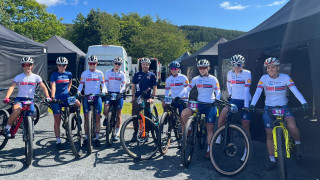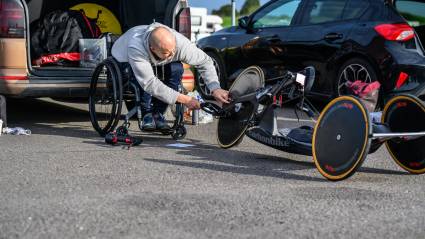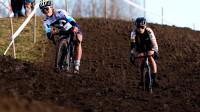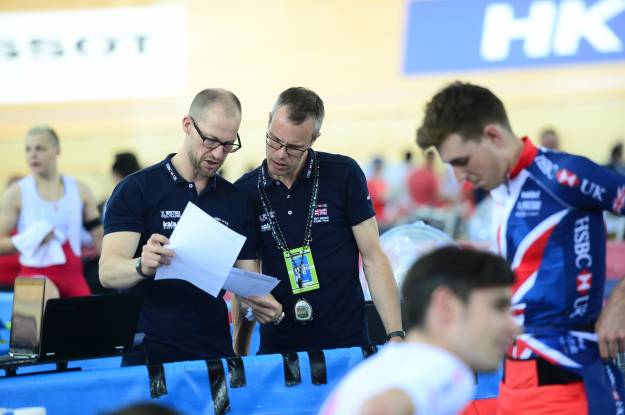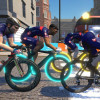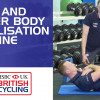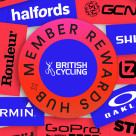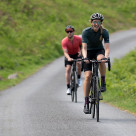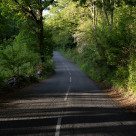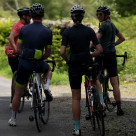Matt Cox is our cross-country mountain bike podium potential coach, working with riders to support their development and aim for breakthrough performances as they move towards being elite.
He's a regular rider himself and over the years hasn't lost sight of the importance of messing around on your bike and making yourself smile. Hear more about his approach to coaching - and why we should all be more Matt.
Why is it important to play on bikes?
Because it’s fun and it’s where the magic happens! This is the time where the fundamental skills are learnt. Balance, co-ordination, weight shifting, brake control and gear selection are all things that are unknowingly being explored and challenged by messing around. Bunny hops, wheelies, skids, manuals, endos all come from taking the time to play and push boundaries.
When done with others it helps to challenge each other and push each other on and can create healthy competition. For kids it’s really easy to find time and playing on bikes is what then gets them into cycling. But, if you’ve come into cycling slightly later it’s still easy and important, but quite often overlooked.
I’d say find time at the start or end of a ride: just five or 10 minutes to just try to challenge yourself and make yourself smile! At the end of the day it’s all time on the bike too so inevitably it helps to improve physical fitness and strength. To call it training could take the fun out of it, but often it is training by stealth.
To what degree is play built into your coaching?
Everyone is different. On the whole, I don’t prescribe ‘play’ in a rider’s day-to-day training plan. For some there will be prescribed sessions with a focus on flat pedal skills which is based around play and challenge, plus I usually include a weekly trail ride session where the main focus is to challenge themselves, technically. I see this as a form of playing.
On training camps there are sessions when we will just find a part of a trail, a set of jumps or rocks and just facilitate ‘play’. I’d just say, crack on and mess around, challenge each other and see what happens; see what you learn. But on the whole, I think we have a really strong culture of playing on bikes. Whether it’s riding to a trail to do efforts, riding to a course or whatever, people are always pulling manuals, wheelies, no handed wheelies, jumping off things... it’s just part of what we do.
Is there space for play when you head to an event?
There’s pretty much always time for play but naturally when we head to competition the focus is more aimed at performance. This comes naturally from the athletes themselves, but the play rarely disappears.
During course practice there’s often an element of play when exploring different lines, maybe racing a team mate through a section to see which line is faster or playing on the jumps or pump track if there’s one in the course. It’s a balance though; sometimes if there is ‘pressure’ then bringing some element of play into the environment can lift the mood or give a different perspective on things.
Do you get out and mess about on the bike as part of your own riding?
I’d like to think that I do. When time constantly feels precious and there’s a work-life balance to be had it’s easy to just make time on the bike about keeping fit and smashing out some miles when you get to my age, but even within that I’ll always try to play around.
On the trail bike I’ll normally use flat pedals as that feels more playful but I’ve always found ways to play about regardless of what bike I’m on and what the intention is. For me playing is often about looking for that challenging line on a climb, the awkward roots or the rocky section. Challenging myself to ride a high line on the off-camber for as long as possible, riding on a curb or a painted line, jumping potholes on the road, manuals, wheelies, skids in the fallen leaves: anything really that means messing around.
Having kids helps too, getting out with them naturally brings the focus to just having fun which I guess takes me back to my very first point! If you don’t enjoy it there’s no point doing it.

